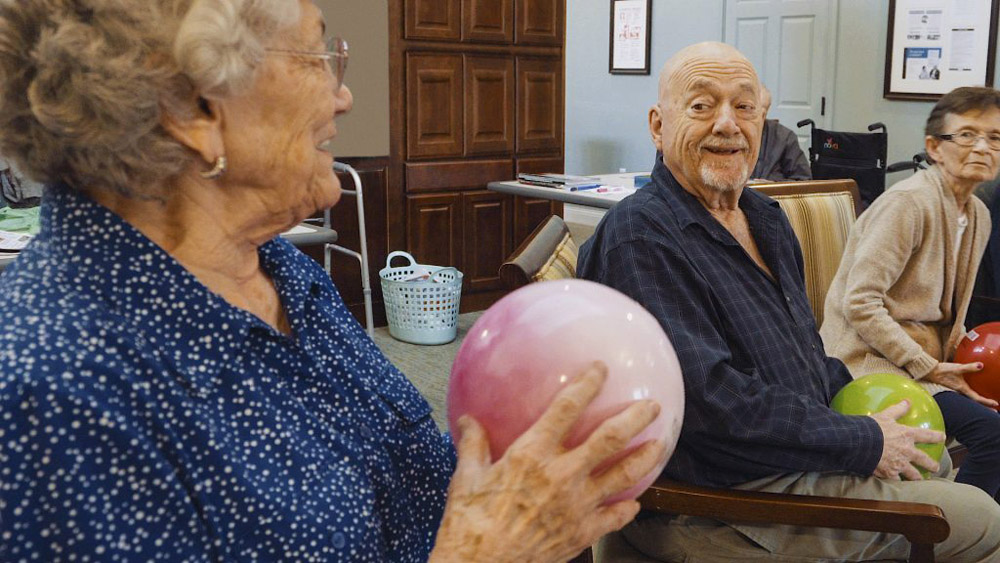Memory Care Explained: Recognizing Services That Make a Difference
Memory care solutions have become an important source for people grappling with cognitive disabilities, such as Alzheimer's and dementia. These customized programs not only provide safe settings and experienced team but also include tailored activities that boost cognitive interaction and psychological wellness. Comprehending the variety of treatments and support group readily available is very important for families steering via these facility decisions. As we check out the various parts that add to effective memory care, it becomes clear that the best selections can considerably impact the top quality of life for both residents and their families.
Overview of Memory Care

Specialized Therapies Available
A number of specialized therapies are readily available within memory care solutions, each customized to resolve the distinct difficulties encountered by individuals with cognitive problems. These therapies intend to enhance cognitive functioning, promote emotional well-being, and boost overall top quality of life.One extensively used technique is reminiscence treatment, which motivates people to mirror on past experiences through photographs, music, and familiar objects. This technique can evoke memories, boost conversation, and foster connections with caregivers and peers.Another effective treatment is cognitive stimulation therapy (CST), developed to engage individuals in mental exercises that promote cognitive abilities and social interaction. CST sessions usually entail puzzles, quizzes, and discussions, offering organized cognitive difficulties that assistance maintain psychological agility.Art and music therapy are also essential components of memory care. These treatments leverage creative expression to assist in communication and emotional release, often profiting those who may battle with verbal communication.Additionally, animal-assisted therapy has actually gotten recognition for its ability to reduce anxiousness and promote social communication through the presence of treatment pets. Collectively, these specialized treatments play a vital function in boosting the lives of people with memory problems, promoting a helpful and enriching atmosphere.
Engaging Tasks and Programs
Engaging tasks and programs play a vital role in memory care solutions, supplying individuals boosting opportunities that advertise cognitive interaction and social communication. Customized to the special requirements of citizens, these activities include arts and crafts, songs treatment, memory games, and workouts. Such programs are designed not only to enhance cognitive function but likewise to cultivate a sense of achievement and community (Memory Care Charlotte).Social interaction is a crucial component of memory care, as it helps in reducing feelings of isolation and anxiety usually experienced by people with memory impairments. Group tasks encourage communication and collaboration, producing an environment where locals can share experiences and construct relationships.Moreover, involving activities can be adapted to differing degrees of cognitive capacity, making sure that all individuals can participate meaningfully. Employee educated in memory care facilitate these programs, offering support and inspiration tailored per individual's capabilities.Incorporating familiar routines and rate of interests into these tasks can better boost their performance, assisting residents get in touch with their past and maintain a sense of identity. On the whole, an all-round selection of interesting tasks enriches the lives of those in memory care, adding to their overall wellness and lifestyle
Value of Family Members Assistance

Choosing the Right Facility
Selecting the appropriate memory care facility is a critical choice that needs careful factor to consider of different elements. Assess the degree of care your liked one needs. Facilities differ in their offerings, from fundamental support to specialized memory care programs tailored for conditions such as Alzheimer's and other dementias.Next, think about the atmosphere of the facility. A welcoming, protect, and comfortable ambience can substantially affect a local's well-being. See capacity facilities to review their cleanliness, safety and security attributes, and total setting. Observe personnel interactions with citizens, as compassionate and skilled caregivers are basic to quality care.Additionally, ask about the facility's staffing proportions and credentials. Boutique Memory Care Charlotte. Sufficient staffing warranties personalized interest and prompt reactions to citizens' requirements. Examine the availability of activities and programs that advertise involvement, socialization, and cognitive stimulation, as these are critical for preserving quality of life
Regularly Asked Questions
What Is the Price of Memory Care Solutions?
The cost of memory care services differs considerably based upon place, facility type, and degree of care needed. Generally, families can anticipate to pay in between $4,000 and $7,000 per month - Dementia Care. These expenditures typically incorporate real estate, dishes, individual care, and customized support for memory-related problems. It is crucial for family members to research choices completely and think about monetary help programs, insurance policy protection, and possible lasting care preparing to handle these expenses efficiently

How Is Team Educated to Deal With Memory Care Homeowners?
Personnel training for memory care citizens is extensive and specialized, concentrating on recognizing the special needs of people with cognitive disabilities. Programs commonly consist of education and learning on dementia-related conditions, interaction strategies, actions monitoring, and psychological assistance techniques. Training likewise highlights the importance of developing a safe and revitalizing atmosphere. Recurring education and hands-on experience warranty personnel are outfitted to provide caring care, fostering dignity and regard for locals while advertising their total wellness.
Are Memory Care Facilities Accredited and Regulated?
Yes, memory care facilities undergo licensing and regulative oversight, which varies by state - Alzheimer’s Care. These laws ensure that centers fulfill certain standards connected to safety, care quality, staffing, and resident rights. Usually, state health and wellness departments or regulative bodies carry out evaluations and keep track of compliance to shield locals with memory impairments. Prospective residents and family members must confirm a center's licensing standing and governing history to determine adequate care and assistance services are offered
Can Citizens Customize Their Living Areas?
Yes, residents in memory care facilities often have the possibility to customize their home. This customization may include choosing decors, setting up furniture, or presenting individual valuables, which can help develop a sense of familiarity and comfort. Such customization is motivated to promote originality and improve the psychological wellness of locals. Nevertheless, any alterations are usually based on facility guidelines to ensure safety and maintain an encouraging setting for all citizens.
What Are the Going To Hours for Family Members?
Checking out hours for family members are normally established to assure that homeowners get ideal care while maintaining significant connections with their enjoyed ones. These hours might differ by center, but frequently, visitation is allowed during assigned times, usually in the afternoon and early night. Dementia Care. It is a good idea for member of the family to confirm specific checking out hours with the center to guarantee compliance with any policies in location, along with to boost the total experience for both residents and visitors
Comments on “How to Identify Memory Care for Cognitive Support”